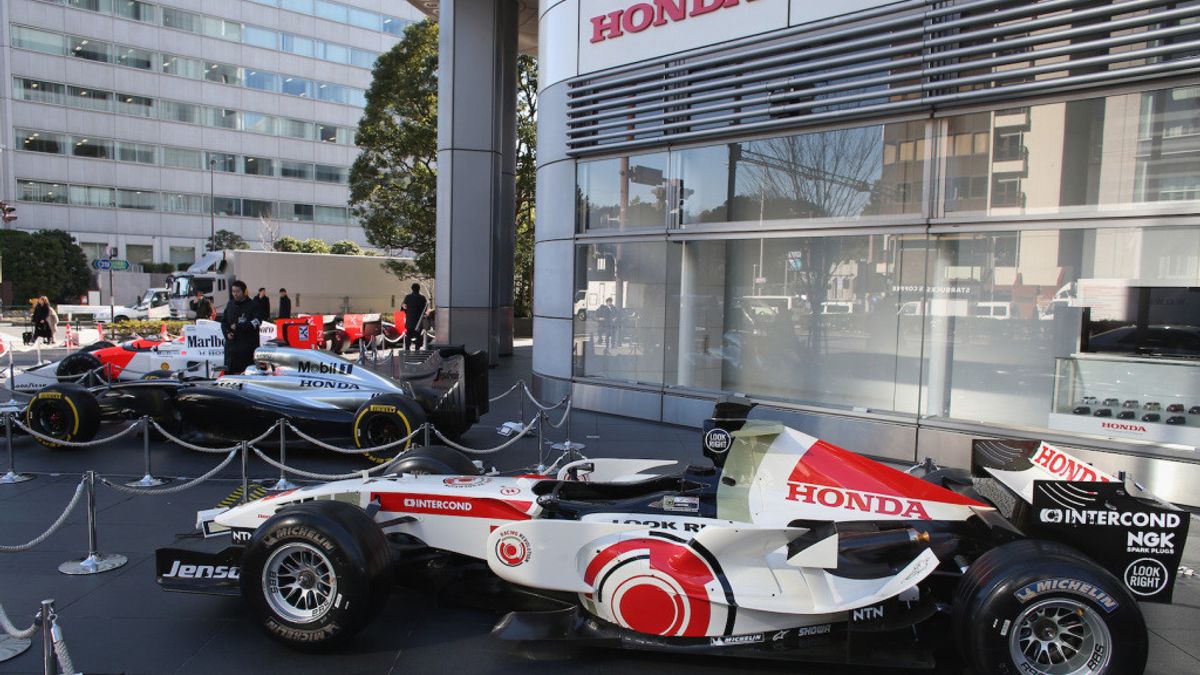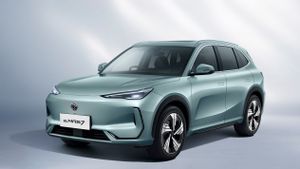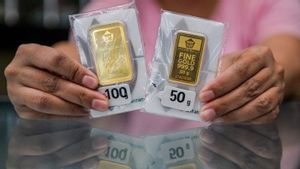JAKARTA - Teams from the Honda Motor car and engine manufacturers have not participated in the Formula One competition for a long time. This time, the Japanese manufacturer announced that it will step down as an engine supplier in the FIA Formula One World Championship at the end of 2021.
Quoting BBC International, Friday 2 October, Honda said that the company wanted to focus on technology without emissions, and create engines related to these technologies. As these manufacturers seek to respond to the challenges of the climate crisis and legislative restrictions on internal combustion engines in many countries.
Not only that, Honda also decided not to return to F1. This was because Honda needed to channel its corporate resources in research and development into the power unit and energy technology sector of the future.
"This is not due to the coronavirus pandemic, but because of our long-term carbon-free goals," said Chief Executive Takahiro Hachigo in a virtual statement.
Some time ago, Honda explained that its biggest problem was the investment required to make its engine project a success.
"We have started to calculate how much it will cost with future regulations. We have noticed that it is very difficult for all car manufacturers today, because of the changing environment for electrification. So, we summed up the development costs and held discussions internally," said F1 Honda managing director. Masashi Yamamoto.
It is known, the engine used for racing cars today is 1.6 liter V6 turbo hybrids. This engine architecture was created in consultation with global auto manufacturers, and they have resulted in a revolutionary step in efficiency.
A strong double points finish 💪 More points on the board for @ AlphaTauriF1 as Dany & Pierre crossed the line in P8 and P9 at the #RussianGP 👊 # PoweredByHonda pic.twitter.com/CisMWry3vh
- Honda Racing F1 (@ HondaRacingF1) September 29, 2020
The thermal efficiency of an F1 speed engine can convert fuel energy into power by approximately 50 percent, compared to an ordinary car engine which only produces 30 percent.
The company, which plans to return to F1 in 2015 in collaboration with the Red Bull Racing team, has instead chosen to accelerate the development of zero-emission technologies such as fuel cells (FCV) and EV (BEV) batteries.
“We understand how difficult it was for the Honda Motor Company to make this decision. We understand and respect the reasons behind this, "said Red Bull Team Head Christian Horner.
The English, Chinese, Japanese, Arabic, and French versions are automatically generated by the AI. So there may still be inaccuracies in translating, please always see Indonesian as our main language. (system supported by DigitalSiber.id)












